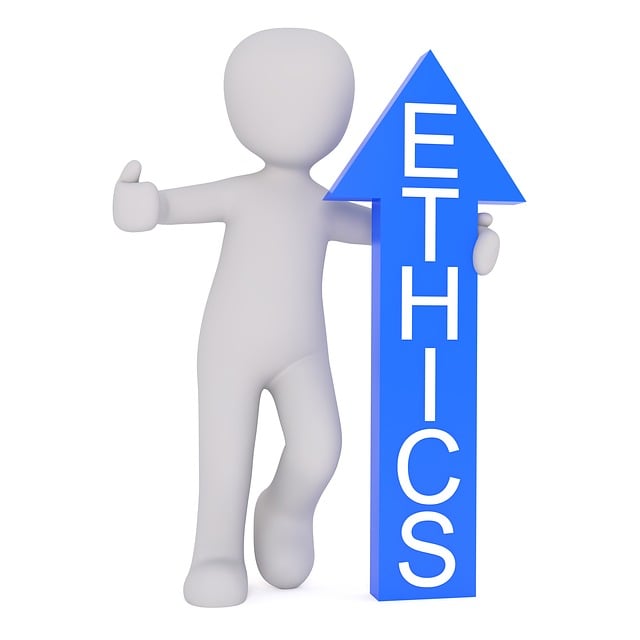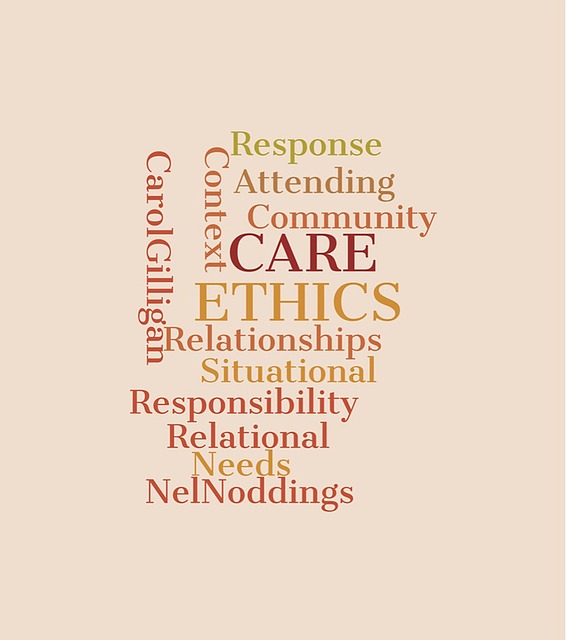UK Code of Conduct and Ethics translation services are indispensable for organizations with international operations, ensuring that ethical guidelines are accurately conveyed and culturally adapted across different languages. These specialized services employ skilled professionals who navigate the complexities of translating ethical documents, maintaining integrity and preventing misinterpretations. By providing clear and precise directives in an employee's native language, these services foster a unified ethical culture within multicultural teams and support adherence to global ethical standards. The translation process is intricate, demanding both linguistic proficiency and cultural sensitivity to accurately reflect the original intent of the UK Code of Conduct and Ethics while making it contextually relevant to diverse regional practices. This ensures that the core principles of corporate integrity and ethics are preserved and understood universally, facilitating compliance and trust across all operations of a global enterprise.
Navigating the nuances of ethics and conduct across diverse cultures necessitates meticulous translation to maintain integrity and clarity. This article delves into the intricacies of translating the UK Code of Conduct and Ethics, a pivotal framework for professional conduct, into other languages. We explore the importance of accurate translations, the common challenges faced, and the key considerations for successful translation services. By examining case studies where translations have been executed with precision, we highlight best practices to ensure that the ethical standards set by the UK are effectively conveyed globally, upholding professionalism and ethical integrity across cultures.
- Understanding the Importance of Accurate Translations in Codes of Conduct and Ethics
- The UK Code of Conduct and Ethics: An Overview
- Challenges Faced When Translating Codes of Conduct and Ethics Across Languages
- Key Considerations for Effective Translation Services
- The Role of Professional Translation Services in Ensuring Clarity
- Case Studies: Successful Translations of the UK Code of Conduct and Ethics
- Best Practices for Translating Codes of Conduct and Ethics from the UK to Other Languages
Understanding the Importance of Accurate Translations in Codes of Conduct and Ethics

Organizations operating in diverse cultural landscapes recognize the importance of codes of conduct and ethics as foundational documents that guide employee behavior and establish ethical standards. The UK Code of Conduct and Ethics translation services play a pivotal role in this realm, ensuring that these critical guidelines are accurately conveyed across different languages and cultures. Missteps in translations can lead to misinterpretation and non-adherence, potentially causing legal issues or cultural clashes within a multinational workforce. Accurate translations by professional services mitigate such risks by providing clear, culturally relevant directives that employees from various linguistic backgrounds can understand and act upon. This not only fosters a harmonious workplace but also upholds the integrity of the company’s global operations.
In the pursuit of effective communication across international borders, it is imperative to engage with UK Code of Conduct and Ethics translation services that are adept at navigating linguistic nuances and ethical contexts. These specialized translators are trained to handle technical language and the subtleties of meaning within codes of conduct and ethics, ensuring that the translated text maintains its original intent and clarity. By doing so, organizations can confidently extend their ethical frameworks to all employees, regardless of location, thereby promoting a uniform standard of ethical practice that is both understood and respected worldwide.
The UK Code of Conduct and Ethics: An Overview

The United Kingdom’s Code of Conduct and Ethics serves as a cornerstone for professionalism and integrity within various sectors, ensuring that individuals and organisations adhere to high moral standards and legal requirements. As businesses expand globally, the necessity for precise and clear translations of these codes becomes paramount. Translation services specialising in UK Code of Conduct and Ethics translation can bridge cultural and linguistic gaps, making these critical guidelines accessible to a wider audience. These services are instrumental in conveying the nuances of ethical frameworks that are deeply rooted in British legal and professional traditions, thereby upholding standards of conduct across international boundaries.
In the realm of business and governance, the UK’s Code of Conduct and Ethics is a comprehensive set of principles designed to foster trust and accountability. Translating this code into other languages requires not only linguistic expertise but also an understanding of the ethical context in which it operates. Professional translation services adept in UK Code of Conduct and Ethics translation can accurately interpret and articulate these principles, ensuring that they remain intact and relevant across different cultures and languages. This meticulous process is essential for maintaining global standards of corporate governance and professional integrity, facilitating ethical practices worldwide.
Challenges Faced When Translating Codes of Conduct and Ethics Across Languages

Translating codes of conduct and ethics from one language to another presents a unique set of challenges that extend beyond the mere linguistic nuances. These documents are not merely texts but embodiments of cultural norms, legal frameworks, and professional expectations that may not have direct equivalents in other languages or cultures. The UK Code of Conduct and Ethics translation services must navigate these complexities to ensure that the translated codes retain their original intent and meaning while remaining culturally relevant and compliant with local regulations. A significant hurdle is identifying and conveying concepts that are deeply ingrained in the source language but may lack a precise equivalent in the target language. This requires a deep understanding of both languages as well as the cultural contexts within which they operate. Moreover, the translator must be knowledgeable about the ethical principles specific to the field in question, such as legal, medical, or financial ethics, to accurately convey these nuances. The translation process necessitates a thorough review and adaptation of terminology, ensuring that the translated code aligns with both the spirit and letter of the original text. This is crucial for maintaining professional standards and legal integrity across international operations, making the services of expert translators an indispensable asset for multinational organizations.
Key Considerations for Effective Translation Services

When translating codes of conduct and ethics, particularly in documents like the UK Code of Conduct, precision and cultural nuance are paramount. Effective translation services must employ linguistic experts with a deep understanding of both the source and target languages, as well as the context within which these codes operate. These experts should be adept at capturing the intent and spirit of the original text, ensuring that the translated document conveys the same meaning and ethical standards without compromise. Cultural differences can often distort the message if not carefully navigated, potentially leading to misunderstandings or misinterpretations of the code’s guidelines. Therefore, it is crucial to engage with translation services that have a proven track record in handling legal and professional documents, demonstrating an ability to maintain the integrity and clarity of the original content while adapting it to the linguistic and cultural context of the intended audience. This not only ensures compliance but also fosters trust and credibility across different regions where the UK Code of Conduct and Ethics may be applied.
In the process of translating such critical documents, translation services must employ rigorous quality assurance protocols to validate the accuracy and relevance of the translated text. This includes a multi-step review process by different professionals who bring diverse linguistic and subject matter expertise to the table. Such a collaborative approach ensures that the nuances of ethical language are preserved, and the translated UK Code of Conduct and Ethics remains a reliable reference for all parties involved, regardless of their language proficiency or geographical location.
The Role of Professional Translation Services in Ensuring Clarity

In an increasingly globalized business landscape, the importance of clear and accurate translations of codes of conduct and ethics cannot be overstated. When organizations expand their operations internationally, they must navigate diverse cultural contexts, where the nuances of language play a pivotal role in effective communication. This is particularly true for UK-based entities seeking to implement their Code of Conduct and Ethics across different regions and languages. Professional translation services stand at the forefront of this challenge, offering not just linguistic expertise but also cultural competence. These services ensure that the ethical guidelines and standards of conduct are accurately conveyed in a manner that is both understandable and relevant to the target audience. By leveraging the expertise of seasoned translators who specialize in legal and corporate documentation, businesses can maintain consistency and integrity across their global operations, ensuring that employees from all corners of the world adhere to the same ethical standards as their counterparts in the UK. This not only fosters a sense of unity within the organization but also mitigates risks associated with miscommunication or misunderstanding of policies.
The translation process is intricate and demands a deep understanding of both the source and target languages, as well as the cultural contexts they represent. Professional UK Code of Conduct and Ethics translation services go beyond mere word-for-word translation. They employ native speakers with expertise in ethical frameworks to ensure that the core principles and expectations are accurately translated, taking into account local regulations and business practices. This meticulous approach is crucial for multinational corporations that aim to uphold their values and standards across different jurisdictions. It ensures that the translated documents serve their intended purpose, guiding employees in their professional conduct and fostering an environment of ethical responsibility that aligns with the company’s global ethos.
Case Studies: Successful Translations of the UK Code of Conduct and Ethics

Translating the UK Code of Conduct and Ethics into other languages presents a complex challenge that requires not only linguistic precision but also cultural sensitivity to ensure clarity and relevance in different contexts. Successful translations are pivotal for global organisations, as they enable the consistent application of ethical standards across diverse environments. For instance, a leading telecommunications company leveraged UK Code of Conduct and Ethics translation services to adapt their guidelines for employees in mainland Europe. This initiative facilitated seamless integration of their ethos into local practices without compromising the core principles. The translators employed not only rendered the text semantically accurate but also contextually appropriate, ensuring that nuances related to compliance, confidentiality, and anti-corruption were conveyed effectively in multiple languages.
Another case study involves a multinational pharmaceutical company that required the UK Code of Conduct and Ethics to be translated for its operations in Asia. Utilising specialist translation services, they achieved a successful localisation of the code, taking into account regional regulations and cultural norms. This meticulous approach ensured that the code’s intent was upheld while also considering local laws, thereby maintaining ethical integrity across all business functions. The success of these translations underscores the importance of employing expert UK Code of Conduct and Ethics translation services to navigate the intricate interplay between language, culture, and governance. These examples highlight the transformative impact of professional translations in fostering a global standard of ethical conduct, thereby promoting integrity and trustworthiness within international corporate environments.
Best Practices for Translating Codes of Conduct and Ethics from the UK to Other Languages

When translating the UK Code of Conduct and Ethics into other languages, it is imperative to maintain the integrity and precision of the original text. The nuances of ethical language can be particularly challenging, as ethical concepts often have complex connotations that do not translate directly from one language to another. To achieve this, translation services should employ bilingual or multilingual professionals with expertise in legal and ethical terminology. These experts are well-equipped to navigate the subtleties of language, ensuring that the translated code reflects the intent and spirit of the original document.
A successful translation goes beyond literal word-for-word conversion; it involves understanding cultural contexts and regional differences in ethical perspectives. This is where professional UK Code of Conduct and Ethics translation services excel. They employ a rigorous process that includes context analysis, conceptual equivalence review, and careful selection of words that carry the same weight and meaning in the target language as they do in English. By adhering to these best practices, such translation services can provide organizations with accurate and culturally relevant translations of their codes of conduct and ethics, facilitating global understanding and compliance across diverse linguistic and cultural landscapes.
In concluding, the importance of translating the UK Code of Conduct and Ethics with utmost clarity cannot be overstated. This complex task demands specialized knowledge and cultural sensitivity to ensure that the ethical framework is accurately conveyed in other languages. The challenges are significant, yet the availability of professional translation services specializing in such precise and delicate work provides a clear path forward for organizations operating across linguistic and cultural boundaries. By adhering to best practices and leveraging expertise in this field, companies can confidently extend their ethical standards globally, fostering an environment of trust and integrity that transcends language barriers. It is through these meticulous translations that the principles embodied within the UK Code of Conduct and Ethics can be effectively shared and honored worldwide, thereby upholding universal standards of professionalism and ethical conduct.



